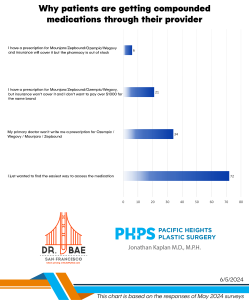 Medical tourism had or still has a bad reputation depending on who you ask. Going far from home for less expensive medical services could end in disaster. Well, for better or worse, consumers are still traveling, but closer to home. And that’s domestic tourism.
Medical tourism had or still has a bad reputation depending on who you ask. Going far from home for less expensive medical services could end in disaster. Well, for better or worse, consumers are still traveling, but closer to home. And that’s domestic tourism.
Is domestic tourism safer?
Whether domestic tourism is safer than the international travel associated with medical tourism depends on the motivation for traveling in the first place. Often times, the reason for medical travel away from home is affordability. Cheaper care can still be quality care. But there is a reality that the consumer must recognize.
In the United States, to adhere to a minimum standard of quality and to pass annual facility inspections costs money. And to cover those costs, a facility must charge a reasonable amount. Internationally, a facility may not have those same standards. And if they don’t have to pay for capital improvements, they can pass those savings onto the patient. So yes, it’s cheaper in other countries, but there’s no guarantee the facility meets the standards taken for granted in the US.
In contrast, domestic facilities must keep up with the latest regulations to stay in business. Maybe it won’t be as inexpensive as going outside of the country, but there’s no question you can find less expensive quality care in the US if you’re willing to travel. Click here to determine your out-of-pocket expenses at those accredited facilities with certified doctors.
The risk of complications
But even if you find a legitimate place to have a procedure domestically, you can’t eliminate the possibility of having a complication. And if you do have a complication after your procedure, you have to find a new doctor to take care of you.
It’s great if you can travel and save money and live happily ever after. But if you have a complication and your doctor isn’t available, that’s a problem. First off, if you’re suffering a complication, you’re not in the best position to start searching for a new doctor to help you.
It’s not a position your doctor wants to be in either. When addressing a complication that’s not their own, the doctor is trying to play “catch up” and figure out what’s been done, what’s going on now, and how to fix it.
I’m not suggesting the doctor won’t try and do their best to help the patient. But it’s less than ideal for a doctor to fix another physician’s complication mid stream. In the end, cheaper care, while potentially high quality, still has its unavoidable risks.
Click here for the original blog post written by Dr. Kaplan for BuildMyBod.




